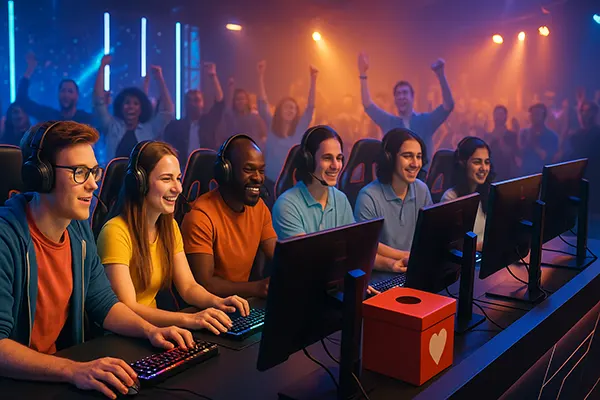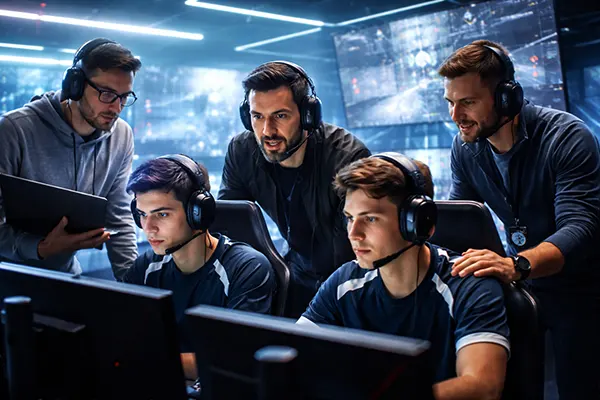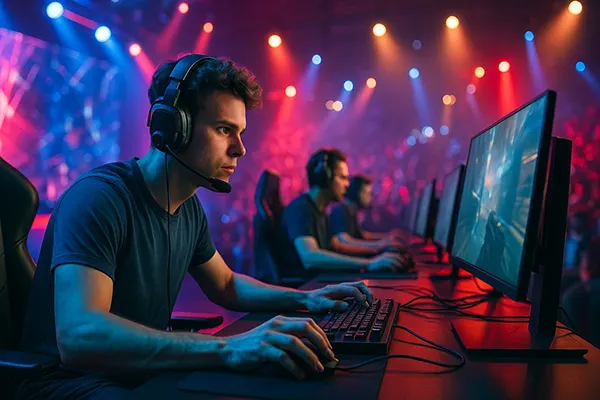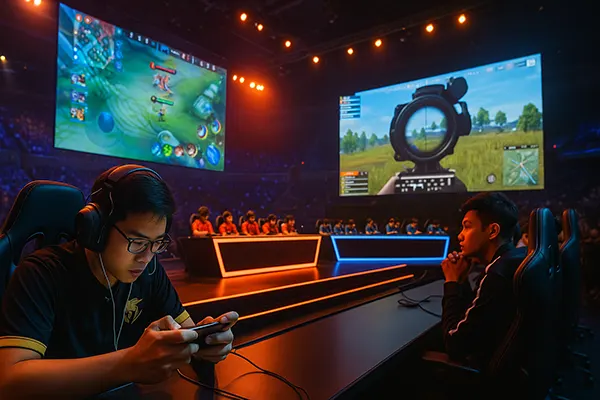Esports and Charity: How Gamers Are Changing the World for the Better

Over the past decade, esports has grown from a niche entertainment sector into a global phenomenon, attracting millions of players and viewers worldwide. Alongside this rapid rise, a remarkable trend has emerged: gamers, teams, and tournament organisers are increasingly using their influence to support charitable causes. This collaboration between competitive gaming and philanthropy demonstrates the positive impact that digital communities can have on real-world issues.
The Rise of Charity Events in Esports
Charity tournaments have become one of the most effective ways for esports communities to raise funds for meaningful causes. Events like Games Done Quick, which has raised over $46 million for various charities since its inception, highlight the power of the gaming community to unite for a purpose beyond competition. These marathons showcase speedrunners completing games at record-breaking pace while encouraging donations from viewers.
Major esports organisations have also joined this movement, hosting charity matches and donating portions of their tournament revenues. For instance, Riot Games frequently incorporates fundraising elements into its League of Legends World Championships, offering limited-edition in-game skins where a portion of sales supports global charity initiatives. This approach allows fans to contribute while engaging in their favourite games.
The success of such events shows how esports can mobilise massive audiences for good causes, transforming entertainment into an engine for global social change. These charity-driven competitions not only generate significant funding but also raise awareness about critical issues like healthcare, disaster relief, and education.
How Esports Charity Events Are Organised
Organising large-scale esports charity events requires cooperation between tournament hosts, sponsors, game developers, and streaming platforms. Planners typically secure brand sponsorships to cover operational costs, allowing most of the donation income to go directly to charity. In-game rewards, special merchandise, and celebrity guest appearances are often used as incentives for viewers to contribute.
Donation systems are usually integrated into live broadcast platforms such as Twitch and YouTube Gaming, ensuring contributions are seamless and transparent. Viewers can track real-time fundraising progress, which motivates further participation and helps build a sense of shared achievement. Some events also offer matched donations from corporate sponsors to double the impact.
Ultimately, these events demonstrate how structured planning, community engagement, and technological tools combine to turn digital competition into a force for tangible social good. The framework developed for charity tournaments is now being adapted across different genres and game titles worldwide.
Professional Gamers as Charity Ambassadors
Beyond organised tournaments, many professional players are using their personal influence to support charitable causes. Streamers and esports athletes often dedicate specific streams or prize winnings to fundraising campaigns, leveraging their fanbase to amplify the impact of their efforts. Their authenticity and personal connection to their audiences make these campaigns particularly successful.
High-profile examples include players from teams like FaZe Clan and Team Liquid who have organised personal donation drives during natural disasters or humanitarian crises. These initiatives often gain traction quickly due to the players’ large social media followings and their ability to mobilise communities around urgent issues.
By acting as ambassadors for charity, these gamers help redefine public perceptions of the esports industry. Instead of being seen solely as entertainers, they are recognised as influential figures who can contribute meaningfully to society. This role model effect inspires younger gamers to view philanthropy as a natural part of their careers.
The Social Influence of Esports Figures
Esports figures often serve as cultural icons for younger audiences, and their charitable activities help promote empathy and social responsibility. When well-known players advocate for causes such as mental health support, climate action, or children’s hospitals, they use their visibility to normalise charitable behaviour within the gaming community.
This influence is particularly strong among Generation Z, a demographic known for valuing social activism. Seeing their favourite players involved in charity work encourages fans to contribute, volunteer, or even start their own fundraising campaigns. This ripple effect broadens the overall culture of giving within esports.
Furthermore, organisations often provide logistical and promotional support to their players’ charity efforts, ensuring campaigns reach wider audiences and achieve measurable results. This synergy between individual and organisational action enhances the credibility and sustainability of esports-based philanthropy.

Long-Term Impact on Communities
The impact of esports charity initiatives extends far beyond the immediate funds raised. Many events fund long-term projects in education, healthcare, and infrastructure, leaving lasting benefits for vulnerable communities. For example, donations from major esports marathons have financed cancer research, provided clean water in developing countries, and supported disaster recovery programmes.
Additionally, these efforts foster cross-cultural collaboration by uniting international audiences around shared humanitarian goals. Gamers from different regions come together to support causes, bridging cultural divides and building global solidarity. This cultural exchange enriches the community and strengthens social cohesion.
Crucially, the charitable reputation of esports helps counter negative stereotypes often associated with gaming. By highlighting the tangible positive outcomes of their activities, esports organisations and players demonstrate that gaming can be a vehicle for real-world progress and compassion.
Challenges and Future Outlook
Despite the success of many initiatives, esports-based philanthropy faces challenges such as donor fatigue, transparency concerns, and ensuring long-term engagement. Maintaining public trust requires clear reporting on how funds are used and demonstrating measurable outcomes from donations.
However, the growing institutional support for these initiatives suggests a promising future. More tournaments are formalising their charitable components, and developers are increasingly integrating fundraising tools directly into games. These structural changes make giving easier and more accessible to players worldwide.
As esports continues to expand in 2025 and beyond, its potential to drive social change will only grow. With the right balance of transparency, community involvement, and innovation, gamers can continue transforming their passion into a force for global good.




